Do you need a license to drive an electric scooter? This question is top of mind for eco-conscious commuters and thrill-seekers alike.
The short answer? Often not—but don’t hit the throttle yet! While many states skip license requirements, age restrictions (14–16+), road rules (bike lanes vs. streets), and even helmet laws vary wildly. Some cities demand a standard driver’s permit; others penalize sidewalk riding.
With regulations shifting faster than a scooter’s top speed, a single oversight could cost you. Ready to dodge fines and ride confidently? Let’s break down what your local laws demand.
Do You Need a License to Drive an Electric Scooter?
Most states don't require a driver's license for e-scooters, though requirements vary based on your scooter's speed and location.
Even without licensing requirements, age restrictions typically apply—with most states setting the minimum age at 16. Younger riders often must wear helmets by law.
Your scooter should be equipped with safety essentials like headlights, reflectors, and brake lights to keep you visible and safe on the road.
Remember: city regulations may differ from state laws, so always check local rules before your first ride!
E-Scooter License Requirements by State

You can typically ride an e-scooter on public roads without special permits in many states. Here’s a table guide.
Note that the e-scooter regulations are evolving rapidly, and my information may not reflect the most current laws. For the most accurate information, please check with your state's DMV or transportation department.
States Generally NOT Requiring a Driver's License for Basic E-Scooters:
Most states including California, Texas, Florida, New York, etc.
States with Special Requirements:
- California: No license for scooters under 750W, but riders must be 16+
- Connecticut: Driver's license required for motorized scooters over certain speeds
- Massachusetts: Driver's license or learner's permit required
- Hawaii: License may be required depending on scooter classification
- North Carolina: Registration may be required for certain classifications
States with Restrictions:
- Pennsylvania: Legal status varies by locality; restricted in some areas
- Delaware: Highly restricted, with limited legal use areas
Important Considerations:
- Many states classify e-scooters differently based on:
- Maximum speed (typically 15-20 mph)
- Motor wattage (typically under 750W)
- Design features
Local ordinances often have stricter requirements than state laws, and many states require riders to be 16+ regardless of license requirements. Helmet requirements vary widely by state and age group.
This information should be verified with official sources before riding, as regulations change frequently and vary significantly by location.
Different Types of Electric Scooters and License Rules
1. Standard E-Scooters (≤20 mph, ≤750W)
- License: Rarely required (e.g., CA, NY, MO).
- Rules: Ride in bike lanes/roads; no sidewalks in most cities.
- Safety: Reflectors, lights, and bells often mandatory.
2. High-Powered Scooters (>20 mph, >750W)
- License: Required in some states (e.g., AL, NJ for road use).
- Classification: May be labeled as “mopeds” or “motor vehicles” (e.g., PA).
- Registration/Insurance: Mandatory in states like GA if exceeding 30 mph.
Key Variables
- Wattage: The 750W threshold is federally recognized for “low-speed” vehicles. Missouri exempts sub-750W scooters from licenses.
- Location: Sidewalks are banned in 90% of major U.S. cities (e.g., Chicago fines up to $250). Bike/pedestrian paths often prohibit motorized vehicles.
How to Check Your State's Electric Scooter Laws
Your state's Department of Motor Vehicles (DMV) website is the best place to find current e-scooter laws. Look for sections about "alternative transportation" or "micro-mobility."
City government websites often list local rules that might be different from state laws. These local ordinances can change more often than state laws.
Quick ways to check laws:
- Call your local DMV office
- Contact city transportation departments
- Visit e-scooter company websites
Laws change frequently as e-scooters grow more popular. A rule that existed last year might be different now. Check for updates every few months if you ride regularly.
When traveling, research the laws at your destination. Don't assume rules are the same everywhere.
Age Requirements for Electric Scooter Riders

Most states set 16 as the minimum age for riding electric scooters legally, whether owned or rented.
Some key points about age limits:
- No driver's license typically required for basic e-scooters
- Rental companies often require riders to be 18+
- Pennsylvania follows either e-bike or motor vehicle laws depending on scooter classification
- Age restrictions exist for safety reasons
These rules exist for safety reasons. Younger riders may lack the coordination, judgment, and experience needed to navigate traffic safely. Parents should check local laws before letting teens ride electric scooters.
ID Requirements for Younger E-Scooter Riders
- Rental services require ID verification (usually driver's license)
- Mobile app verification common for rental services
- Carry ID when riding your own scooter to prove age if stopped
- Some services offer parent-supervised accounts for teens 16-17
Always check your local regulations, as rules vary significantly by location and continue to evolve.
Rental vs. Personal Electric Scooters
The rules for electric scooters in Florida differ depending on whether you're using a rental or your own personal scooter. This creates confusion for many riders about when a license is needed.
Why Rental Companies Want Your License
When you hop on a scooter, you'll typically need to scan your driver's license—not because Florida law demands it, but because rental companies do.
This practice helps them verify you're 18+, establish your identity, create accountability, and reduce theft and vandalism. Some companies even conduct quick driving record checks to screen out potentially risky riders.
Different Rules for Personally Owned Electric Scooters
If you own your electric scooter in Florida, the rules are different. You don't need a driver's license to operate a personal e-scooter. However, you must be at least 16 years old to ride one legally.
Your personal scooter follows bicycle traffic laws, keeping you off highways while giving you significant freedom on city streets.
Keep in mind that local ordinances may add extra layers of regulation—many beach communities limit riding areas or enforce lower speed limits in tourist zones to keep everyone safe.
Where You Can Legally Ride Your Electric Scooter

Most states welcome e-scooters on roads with speed limits under 35 mph, with bike lanes being your safest bet.
Sidewalks are typically off-limits—Washington State explicitly prohibits sidewalk riding to protect pedestrians. Downtown areas often enforce stricter regulations than residential neighborhoods.
Fortunately, many cities are creating dedicated scooter lanes or shared micromobility paths.
Always check local rules before riding. What's legal in one city might get you a ticket in another!
Speed Limits for Licensed vs. Unlicensed Electric Scooter
Many cities enforce different speed zones:
- School zones: 5-10 mph
- Shared paths: 10-15 mph
- Bike lanes: 15-20 mph
Cities frequently enforce zone-specific speed restrictions: 5-10 mph near schools, 10-15 mph on shared paths, and 15-20 mph in bike lanes.
Modern scooters even feature GPS technology that automatically adjusts your speed to match local regulations—keeping safety first while you enjoy the ride.
City-Specific Electric Scooter Regulations
Local ordinances frequently override state regulations when it comes to e-scooters. While your state might not require a license, cities like Lenexa, Kansas establish their own distinct riding zones and requirements.
Major cities have developed unique approaches:
- San Francisco limits rental scooters and prohibits sidewalk riding
- New York City allows e-scooters everywhere except Manhattan
- Chicago permits riding on roads with speed limits under 30 mph
- Portland has created dedicated scooter lanes
- Austin focuses on safety features like required night lighting
- Always check your city's transportation department website before riding—local rules evolve quickly as cities adapt to these popular transportation options.
Safety Requirements for Electric Scooter Riders

Riding an electric scooter comes with responsibilities. You need to follow certain safety rules to protect yourself and others on the road.
Helmet Laws for E-Scooter Drivers
Many states require helmet use for electric scooter riders, especially for those under 18. Some places make helmets mandatory for all riders regardless of age. Wearing a helmet can reduce your risk of head injury by up to 85% in an accident.
In states like Virginia, helmets are required since e-scooters are often classified as mopeds. Maryland treats e-scooters like bikes, but safety experts still strongly recommend helmet use even when not legally required.
Always choose a helmet that fits properly. It should sit level on your head and not rock back and forth. The straps should form a "V" under your ears and feel snug but comfortable.
Insurance Requirements for Electric Scooter Owners
Most states don't require special insurance for personal electric scooters. This differs from mopeds and motorcycles, which typically need insurance coverage.
However, getting insurance is still a smart idea. A basic policy can protect you if:
- You damage someone else's property
- You injure another person
- Your scooter gets stolen or damaged
Some homeowner's or renter's insurance policies might cover e-scooter accidents, but you should check with your provider. Many companies now offer specific electric scooter insurance plans with affordable monthly rates.
If you rent scooters through sharing services, the company usually provides basic liability coverage, but it might not cover all potential damages or medical costs.
How to Stay Updated on Electric Scooter License Requirements
To keep pace with evolving e-scooter laws, visit your state's DMV website for their "alternative transportation" or "electric mobility devices" section.
Check your city government website too, as local rules often exceed state restrictions, especially in tourist destinations and college towns.
Join local rider forums or Facebook groups where enthusiasts share news about rule changes before they're widely announced.
With regulations still developing across the country, make it a habit to review your local laws quarterly to ride confidently and legally.
Ready to join the e-scooter revolution? Check out Circooter's premium electric scooters for your commuting needs.
And since every rider wants to maximize their travel distance, don't miss our informative article: Factors Affecting Electric Scooter Battery Life to keep your rides going stronger, longer.
Frequently Asked Questions
What are the licensing requirements for riding an electric scooter in California?
California classifies electric scooters as motor vehicles. You must have a valid driver's license or learner's permit to operate one.
The minimum age to ride an electric scooter in California is 16 years old. You also need to wear a helmet if you're under 18. California allows e-scooters on roads with speed limits up to 25 mph and bike lanes.
Is a license mandatory for operating an electric scooter in Texas?
Texas does not require a driver's license to ride an electric scooter. Anyone can ride as long as they follow local traffic rules.
However, some Texas cities have their own rules about where you can ride. For example, Austin has specific zones where scooters are allowed. The minimum age to ride varies by city, so check local laws before riding.
Are there specific laws governing the use of electric scooters in different states?
Yes, e-scooter laws vary widely across states. Most states don't require a special license for e-scooters.
Some states limit where you can ride, such as keeping to bike lanes or roads with lower speed limits. Others have age restrictions.
Helmet requirements also differ. Some states require helmets for all riders, while others only mandate them for minors.
What regulations must be followed when riding an electric scooter in Pennsylvania?
Pennsylvania treats electric scooters similarly to bicycles. You don't need a driver's license to operate one.
Riders should stay in bike lanes when available and follow all traffic signs and signals. Pennsylvania allows e-scooters on streets with speed limits of 35 mph or less.
Cities like Philadelphia have additional rules about where scooters can be parked and ridden.
Do you need a license to drive an electric scooter if you are in Michigan?
Michigan does not require a driver's license for electric scooters that go under 20 mph. These are considered "electric skateboards" under state law.
You must be at least 12 years old to ride in Michigan. If you're under 19, you need to wear a helmet.
Michigan allows e-scooters on roads, sidewalks, and bike paths, but local rules may differ.
What do I have to know about electric scooter usage laws in Oregon?
Oregon doesn't require a driver's license for electric scooters. You can ride without special permits or licenses.
You must be at least 16 years old to ride in Oregon. The state requires all riders to wear helmets, regardless of age.
Oregon restricts e-scooters to roads and bike lanes. Riding on sidewalks is prohibited except to park or when no other path is available.

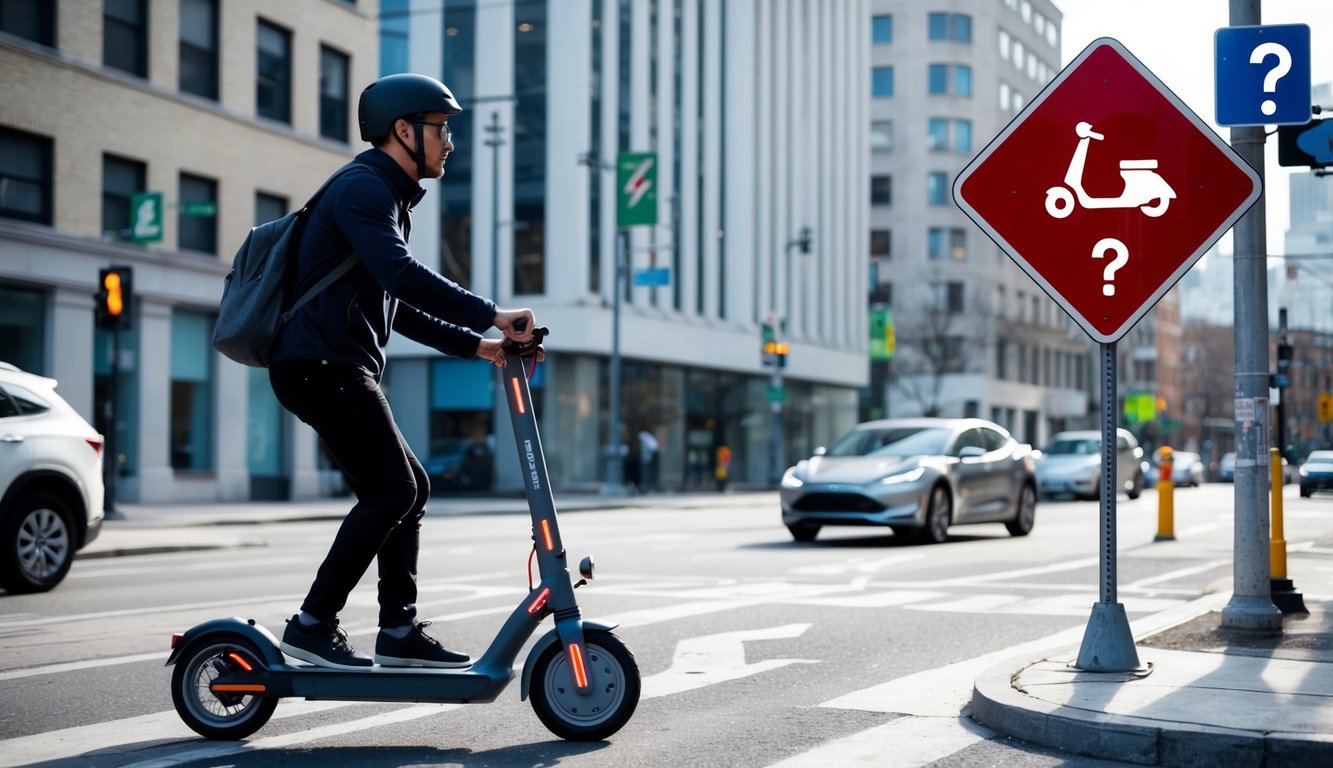
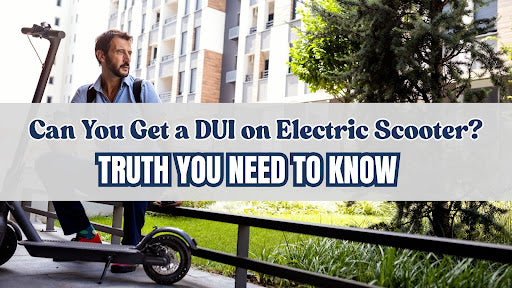
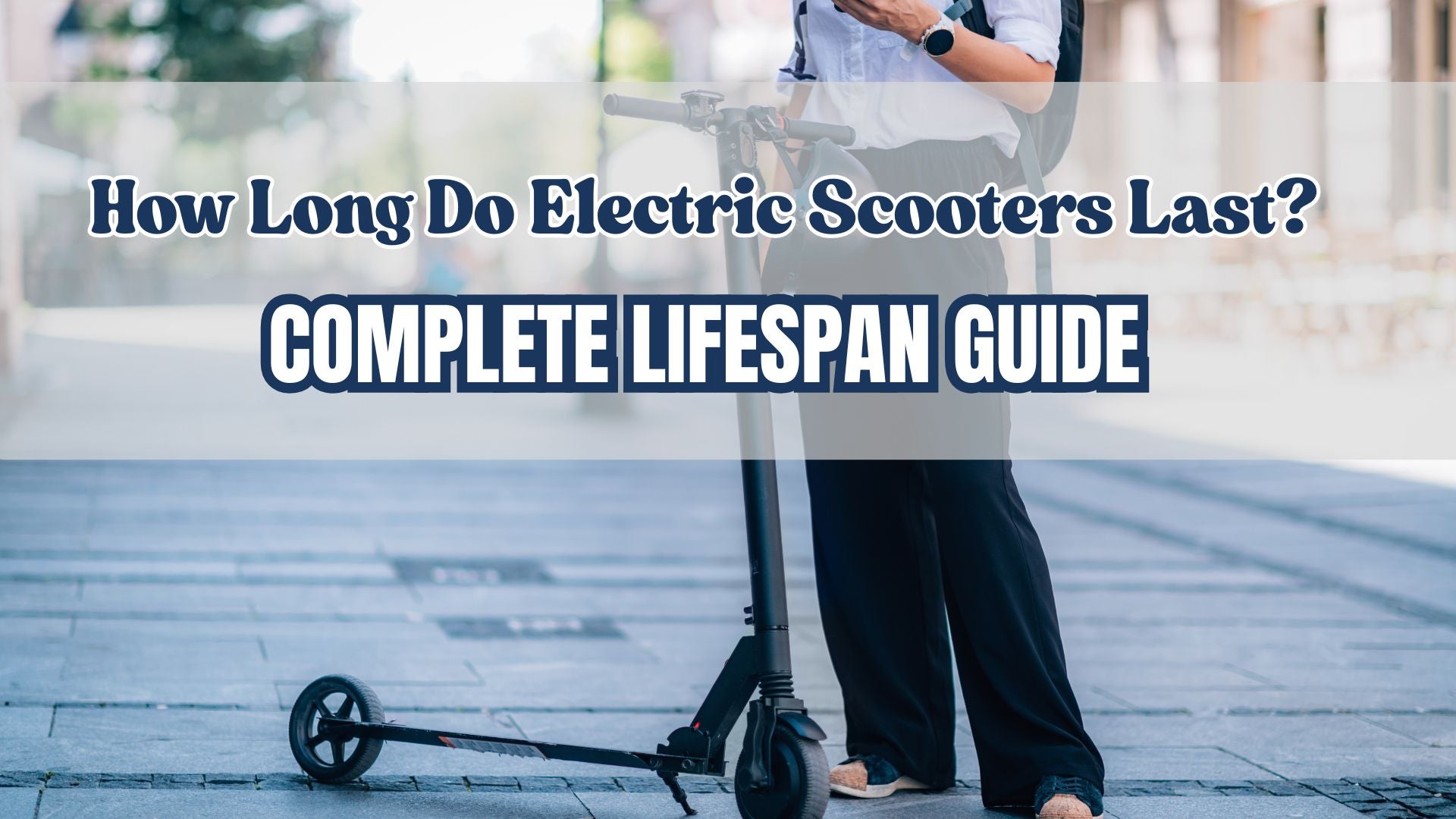

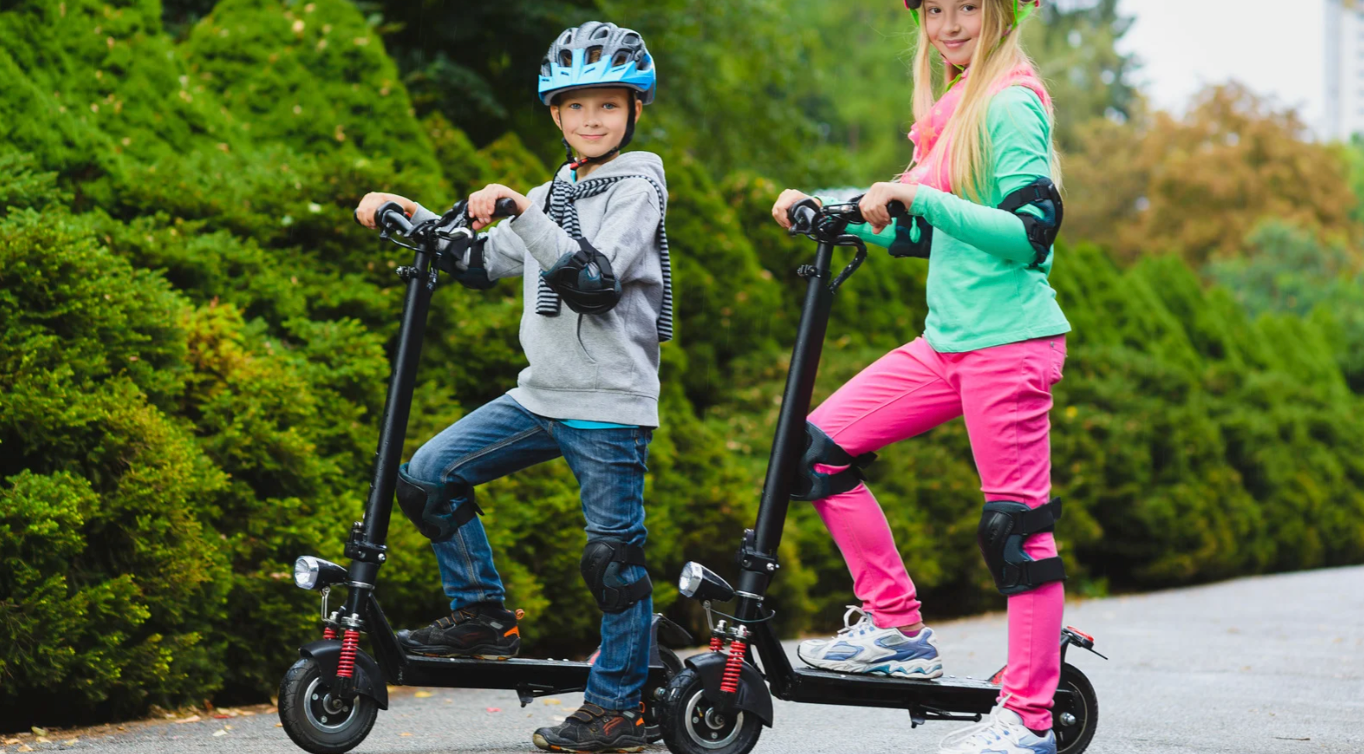
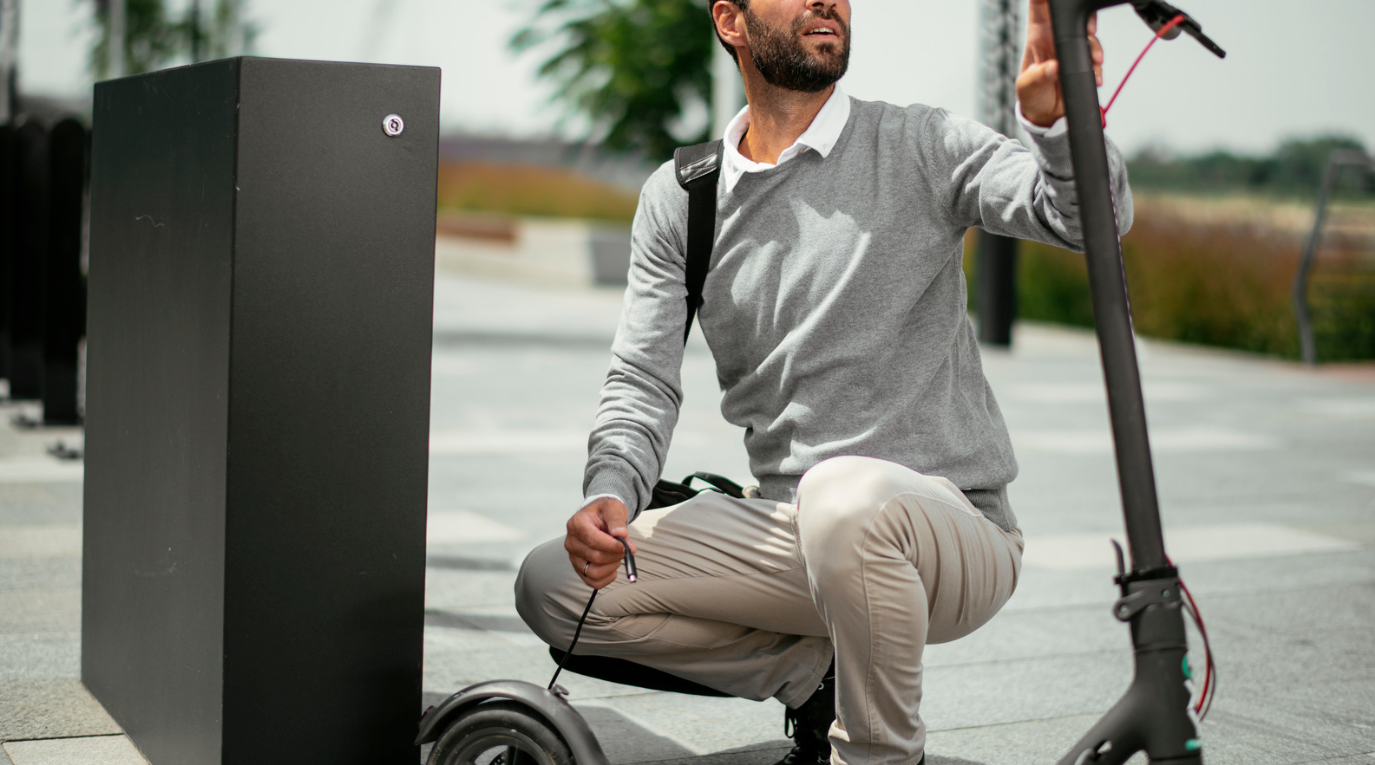



Leave a comment
All comments are moderated before being published.
This site is protected by hCaptcha and the hCaptcha Privacy Policy and Terms of Service apply.